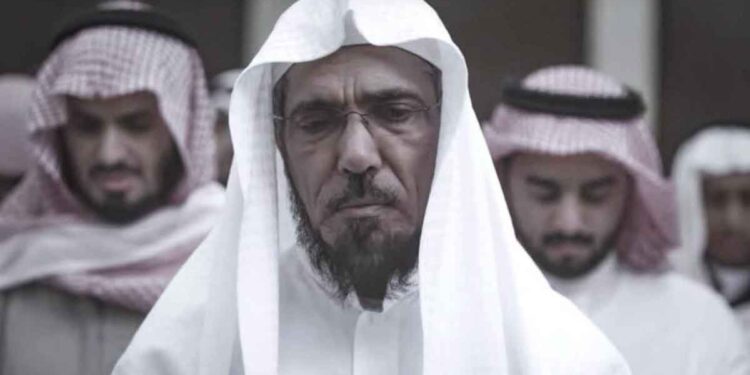Saudi thinker Dr Salman Al-Ouda has entered his ninth year in detention, held on charges linked solely to expressing his opinion.
According to his son, Abdullah Al-Ouda, the prominent scholar has endured severe suffering since his arrest in September 2017, facing “pain and deprivation,” and losing half of his hearing and sight. Abdullah described his father’s trial as a “farce,” noting that Saudi authorities have repeatedly denied him family visits and completely blocked his phone calls for years.
He further stated that his father has been subjected to ill-treatment amounting to torture: deprived of medical care and sleep, interrogated for long hours, shackled by his hands and feet inside his cell, forced to eat from small bags without being allowed to use his hands, and compelled to open food with his teeth—causing them to break.
In September 2017, Saudi authorities arrested Al-Ouda along with scholars Awad Al-Qarni and Ali Al-Omari, accusing them of “terrorism and conspiracy against the state.” The crackdown extended to academics and activists, sparking international condemnation and calls for their release.
On 14 February 2019, Abdullah Al-Ouda wrote an article clarifying that his father’s arrest was due to an “indirect tweet” expressing hope for reconciliation during the Gulf crisis. The Saudi government viewed this as a crime, escalating its campaign against him.
In January 2021, the “Al-Ula Declaration” was issued at the 41st Gulf Summit in north-western Saudi Arabia, announcing the end of the sharp rift that began on 5 June 2017 between Qatar, Saudi Arabia, the UAE, Bahrain, and Egypt.
Despite this reconciliation, Abdullah Al-Ouda continues to question why his father remains imprisoned, pointing out that while Qataris are now free to travel and Gulf citizens can reunite, his father remains behind bars.
Rights groups emphasise that Saudi authorities are imposing harsh conditions on many detainees, with repeated reports of torture and medical neglect. This raises serious concerns about the continued deterioration of Salman Al-Ouda’s health after nearly nine years of arbitrary imprisonment.


























